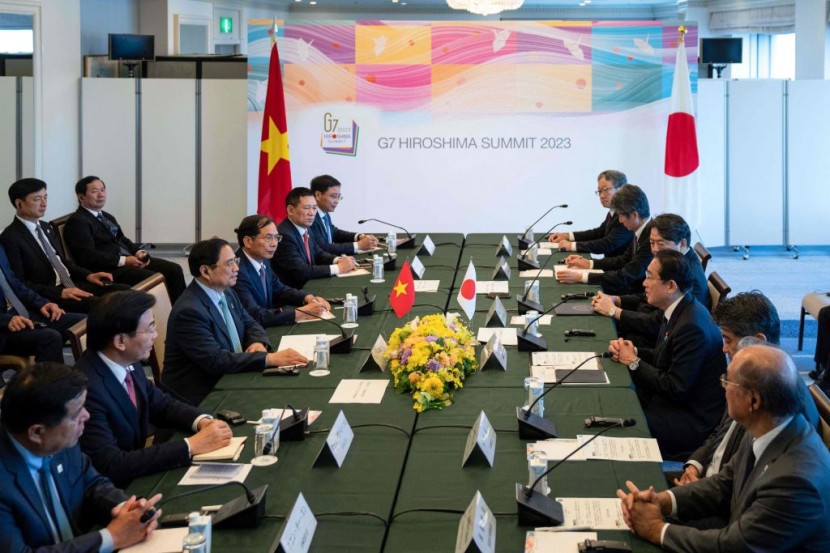
State-backed Chinese mouthpiece Global Times called the G7 an "anti-China workshop" on Monday, a day after Beijing summoned Japan's envoy and berated Britain in a fiery response to statements issued at the group's summit in Hiroshima.
Group of Seven (G7) declarations issued on Saturday singled out China on issues including Taiwan, nuclear arms, economic coercion, and human rights abuses, underscoring the wide-ranging tensions between Beijing and the group of rich countries, including the United States.
China Summoned Japanese Ambassador
Beijing's foreign ministry strongly condemned the G7 declaration, which includes Japan, the UK, Canada, France, Germany, and Italy, and summoned Japan's ambassador to China to protest the summit host late Sunday.
Russia, a strong ally of China and also criticized in the G7 statement for its conflict in Ukraine, termed the summit an "incubator" for anti-Russian and anti-Chinese emotions.
When British Prime Minister Rishi Sunak called Beijing the world's biggest threat to security and prosperity, China's embassy in Britain asked London to cease slandering China.
Analysts claimed China summoning Japan's ambassador showed its wrath. Per US News, Chinese Deputy Foreign Minister Sun Weidong summoned the envoy to denounce "hype around China-related problems," the ministry stated.
Sun claimed Japan worked with other G7 nations "to slander and criticize China, blatantly meddling in China's domestic affairs, breaking the basic principles of international law and the spirit of the four political agreements between China and Japan," referring to the 1972 China-Japan Joint Declaration.
According to a summary, Japan's ambassador to China, Hideo Tarumi, said it was "normal" for the G7 to speak to common concerns as it has in the past and will continue to do so if China does not adjust its behavior.
On Saturday, the G7 communiqué called for "constructive and stable relations" with Beijing, alluding to "de-risking" rather than "de-coupling" from China.
France warned that the meeting should not be perceived as anti-Beijing. It also raised fears about militarization in the East and South China Seas, Taiwan, and Xinjiang and Tibet. The Quad leaders-Australia, India, Japan, and the US-also called for "peace and stability in the Indo-Pacific maritime region," a subtle critique of Beijing.
China Accuses G7 of 'Smears and Attacks'
China is "extremely displeased and firmly opposes" Japan's activities, which harm China's sovereignty, security, and development. Japan should understand China better and gain strategic autonomy. and constructively advance bilateral relations," Sun added.
On Sunday, the Chinese embassy in London responded to UK prime minister Rishi Sunak, saying China was the world's biggest threat to security and prosperity but that other major countries should not disconnect from it.
The embassy urged the UK to cease disparaging China to preserve China-UK relations. Chinese officials banned Micron Technologies from using its chips in vital infrastructure after a two-month security examination.
Christopher Miller, a Tufts University professor, said Micron's market share in China is minor, but the G7 declaration was essential. Miller said the Micron ban might be the first "de-risking" test. G7 leaders also resolved to fight economic "coercion."
As the weekend meeting produced a declaration warning Beijing about its "militarization actions" in the Asia-Pacific region, Beijing accused the G7 of "smearing and attacking" China.
On Sunday, the Chinese Embassy in the UK criticized the G7 Hiroshima Summit's glorification of China-related topics and urged countries to cease forming exclusive blocs. The spokesperson said China strongly condemns the G7's distortion of facts, arrogant intervention in China's domestic affairs, and deliberate denigration of China.
Related Article : Russia, China Blast G7 Summit Agenda to 'Deter' Both Countries









